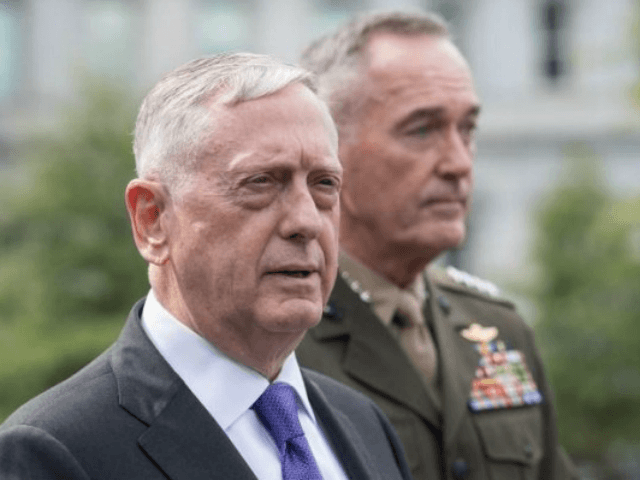U.S. Defense Secretary James Mattis is not planning to visit Pakistan during his ongoing trip to South Asia where he hopes to enhance America’s growing military relationship with India, a decision that is expected to draw the ire of New Delhi’s regional rival Islamabad.
Voice of America’s (VOA) report on Mattis potentially skipping Pakistan during his trip comes amid tensions between Washington and Islamabad that erupted after U.S. President Donald Trump accused the country of providing sanctuary to terrorists in Afghanistan, a position long expressed by the Pentagon.
Likely to the dismay of Islamabad, Mattis kicked off his South Asia trip on Monday in the Indian capital.
Echoing Trump while talking to reporters on his flight to New Delhi, the defense secretary praised India’s important support to Afghanistan, indicating that Islamabad should not construe its regional rival’s expanded involvement in the war-devastated country as a threat.
“I want to applaud India’s invaluable contributions, significant contributions, to promote Afghanistan’s democracy, stability and security in the fight against terrorism,” said Mattis.
“Pakistan has come out recently again saying they are fighting the terrorists. I think Pakistan will find nothing out of line with India and the United States’ alignment in the same fight,” he added.
U.S. officials argue that Mattis’ decision to not stop in Pakistan is not meant as a slight to Islamabad, reports VOA.
“The relationship we are building with India is not to the exclusion of other countries,” said Mattis.
Pakistan has long objected to any Indian involvement in neighboring Afghanistan.
“We don’t foresee any military or political role for India in Afghanistan,” proclaimed Pakistani PM Shahid Khaqan Abbasi last week. “I think it will just complicate the situation.”
Despite Pakistan’s objections, Mattis hopes to deepen the growing U.S.-India defense relationship in South Asia and beyond, particularly in Afghanistan where America is in a “stalemate” with the Afghan Taliban after nearly 16 years of trying to defeat the terrorist group.
“The relationship between India and the United States has never been stronger, and I think that’s pretty much an objective fact,” declared Mattis.
“India, from our perspective, is clearly a pillar of regional stability and security,” he added. “We share a common vision for a peaceful and prosperous future in the Indo-Pacific.”
Although China is the strongest player in the region, Pakistan’s ally Beijing also considers neighboring India to be its economic and military rival.
Mattis’s trip marks the first time the U.S. defense secretary visits South Asia since President Trump unveiled his Afghanistan war strategy last month.
“This is the first Cabinet-level visit to India under the Trump administration,” noted the Pentagon in a statement announcing Mattis ongoing trip to New Delhi, scheduled to end on Thursday.
While praising India’s support for Afghanistan when announcing his strategy, President Trump blasted Pakistan for harboring jihadists who are fighting and killing U.S. troops in their allies across the border in Afghanistan, an accusation that Islamabad has long denied.
Shamila Chaudhary, who worked on U.S. President Barack Obama’s failed South Asia policy, criticized Trump’s strategy as inherently contradictory, warning that it may prompt Pakistan to intensify its support to terrorist groups in response to India’s involvement in Afghanistan.
“On the one hand … we want [Pakistan] to end relationships with these militant groups, and on the other hand we want the Indians to do more in Afghanistan, which will trigger the Pakistanis,” she told VOA. “That will hurt American efforts in the future, I think.”
Besides the Pentagon, Kabul and New Delhi have repeatedly accused Pakistan of serving as a safe haven for jihadists operating in Afghanistan and elsewhere in the South Asian region, including India.
New Delhi has already invested more than $2 billion in economic aid to Afghanistan and has agreed to provide additional support to the Afghan security forces.
So far, India has devoted most of its aid to “the health sector, education, and infrastructure,” notes VOA.
“We have been very careful and cautious about that, to not involve [India] in the military to the extent they want,” Ahmad Shah Katawazai, a U.S.-based senior Afghan diplomat told VOA. “We want to have friendly relationships with both Pakistan and India.”

COMMENTS
Please let us know if you're having issues with commenting.